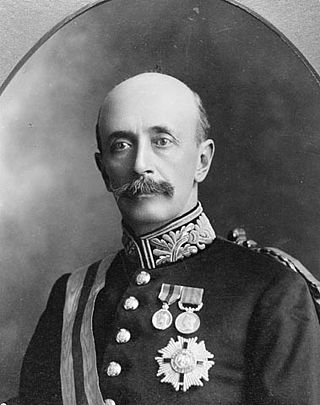
Albert Henry George Grey, 4th Earl Grey, was a British peer and politician who served as Governor General of Canada 1904–1911, the ninth since Canadian Confederation. He was a radical Liberal aristocrat and a member of a string of liberal high society clubs in London. An active and articulate campaigner in late Victorian England he was associated with many of the leading Imperialists seeking change.

Caroline Frances Eleanor Spurgeon was an English literary critic. In 1913, she was appointed Hildred Carlisle Professor of English at the University of London and became head of the Department of English at Bedford College, London. She was the first woman to be awarded a chair at the University of London, and only the third in Britain. She co-founded the International Federation of University Women with Virginia Gildersleeve.

Virginia Crocheron Gildersleeve was an American academic, the long-time dean of Barnard College, co-founder of the International Federation of University Women, and the only woman delegated by United States to the April 1945 San Francisco United Nations Conference on International Organization, which negotiated the charter for and creation of the United Nations.
The National Federation of Music Clubs (NFMC) is an American non-profit philanthropic music organization that promotes American music, performers, and composers. NFMC endeavors to strengthen quality music education by supporting "high standards of musical creativity and performance." NFMC headquarters are located in Greenwood, Indiana.
Graduate Women International (GWI), originally named the International Federation of University Women (IFUW), is an international organisation for women university graduates. IFUW was founded in 1919 following the First World War by both British and North American college and university workers who were hoping to contribute to congenial relations between women of different nationalities. Over 100 years later, GWI continues to advocate for women's rights, equality and empowerment through the access to quality secondary and tertiary education as well as training up to the highest levels. The goal is for 100% of girls and women worldwide to achieve an education beyond primary school.

Manchester High School for Girls is an English private day school for girls and a member of the Girls School Association. It is situated in Fallowfield, Manchester.
Libido is a 1973 Australian drama film comprising 4 segments written and directed as independent stories, but screened together as one piece, exploring a common theme of instinctive desire and contemporary sexuality.

Winifred Cullis was a physiologist and academic, and the first woman to hold a professorial chair at a medical school.
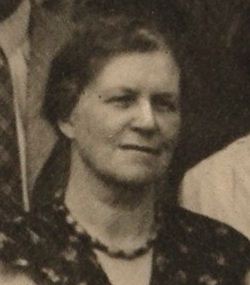
Ida Smedley Maclean was an English biochemist and the first woman admitted to the London Chemical Society.
Ida Winifred Busbridge (1908–1988) was a British mathematician who taught at the University of Oxford from 1935 until 1970. She was the first woman to be appointed to an Oxford fellowship in mathematics.

Winifred Kiek was the first woman to be ordained in the Christian Ministry in Australia. She was ordained on 13 June 1927 in South Australia to the Congregational Union of Australia.

Anna Frederika (Freda) Bage was an Australian biologist, university professor and principal and women's activist. Bage was born in 1883 and studied at Oxford High School for girls and Fairlight School. In 1907, Bage received her Masters of Science from the University of Melbourne and began an extensive career. Bage worked as a junior demonstrator in Biology and in 1908 won the King's College scholarship and in 1909 travelled to London working under Arthur Dendy which led Bage receiving a fellowship by the Linnean Society in 1910–11. Bage returned to the University of Melbourne where she worked as a senior demonstrator and in 1913 she was offered a job at the University of Queensland where she became a biology lecturer. On 8 February 1914 Bage became the first principal of The Women's College within the University of Queensland, which she held for 32 years. In 1928–29, Bage was president of the Australian Federation of University Women (A.F.U.W.), which names a scholarship in her honour, representing it at several conferences of the International Federation of University Women. In 1941, Bage was appointed Order of the British Empire (OBE) and in 1946 she retired. Freda Bage died in 1970 in Brisbane from cerebral arteriosclerosis.
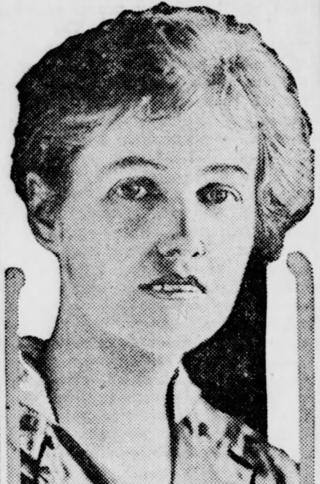
Rose Sidgwick, was a British university teacher and one of the founders of the International Federation of University Women.

Frances Helen Melville, was a Scottish suffragist, advocate for higher education for women in Scotland, and one of the first women to matriculate at the University of Edinburgh in 1892. She was president of the British Federation of University Women from 1935 to 1942.
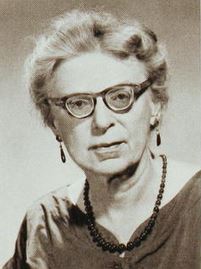
Elmina R. Lucke was an American educator, social worker and international relations expert. After graduating from Oberlin College, she taught high school in Ohio and worked on social service projects before earning her doctorate in International Law and Relations from Columbia University. From 1927 to 1946, she taught at the Teachers College of Columbia making numerous trips abroad to study social work. In 1946, she moved to India to found the first master's degree program in Asia and second school of social work in the country, serving as its director for the next three years. Between 1950 and 1955, she served as a consultant to social work schools in Cairo, Egypt and Pakistan. From 1959 to 1965, she served as a delegate to the United Nations for various women's groups, presenting proposals on issues which impacted women. She was honored by the United Nations for her work in international relations in 1975 and was inducted into the Michigan Women's Hall of Fame in 1986.

The Ladies Dining Society was a private women's dining and discussion club, based at Cambridge University. It was founded in 1890 by the author Louise Creighton and the women's activist Kathleen Lyttelton. Its members, most of whom were married to Cambridge academics, were believers in women’s education and were active in the campaign to grant women Cambridge degrees. Most were strong supporters of female suffrage.
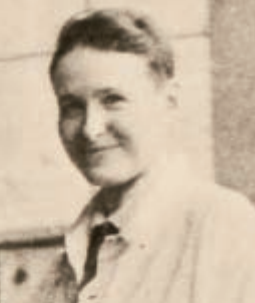
Ira (Irene) Rischowski was one of Germany's first female engineers and active in the German anti-Nazi resistance group Neu Beginnen before fleeing to Britain. In the UK she became a member of the Women's Engineering Society, serving on the Council and supporting efforts to encourage British women to become engineers.
Cynthia Veronica Burek is a Professor of Geoconservation at the University of Chester. She serves on the steering group of the Geodiversity Action Plan (UKGAP) and as a Director of the British Federation of Women Graduates.

Arthur Sidgwick (1840–1920) was an English classical scholar who had an early career as a schoolteacher. Despite his self-deprecating remark "in erudition I am naught", he is considered a great teacher of ancient Greek poetry. He also became an important figure in the advancement of female education at the University of Oxford.
Phoebe Ann Beale Sheavyn was a British literary scholar and feminist. She was a professor at Victoria University of Manchester. She was a founding member of the British Federation of University Women.












